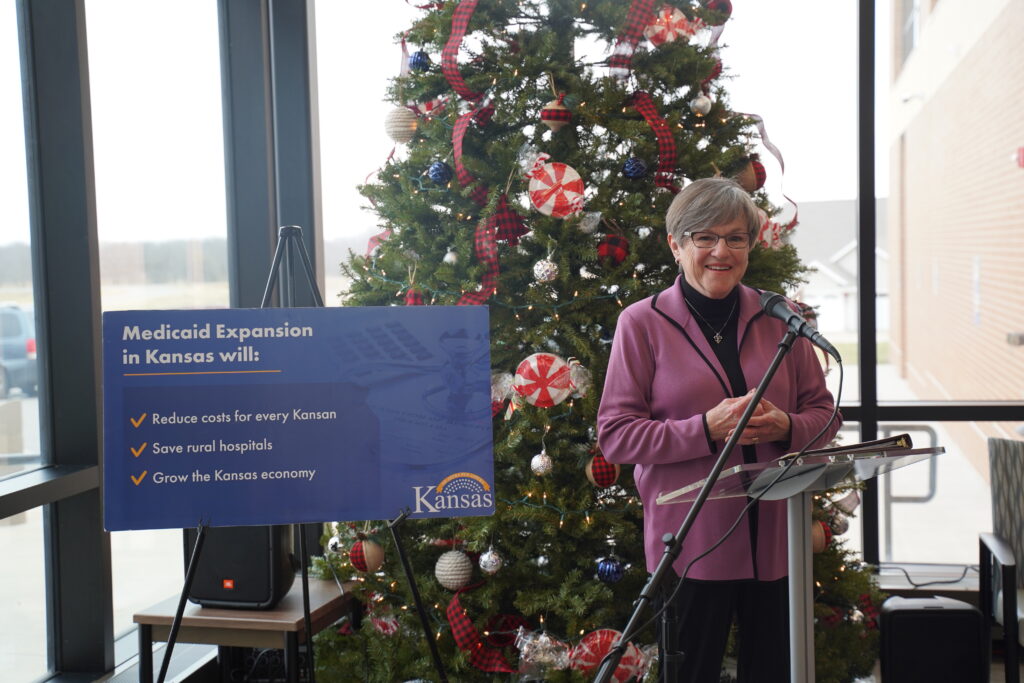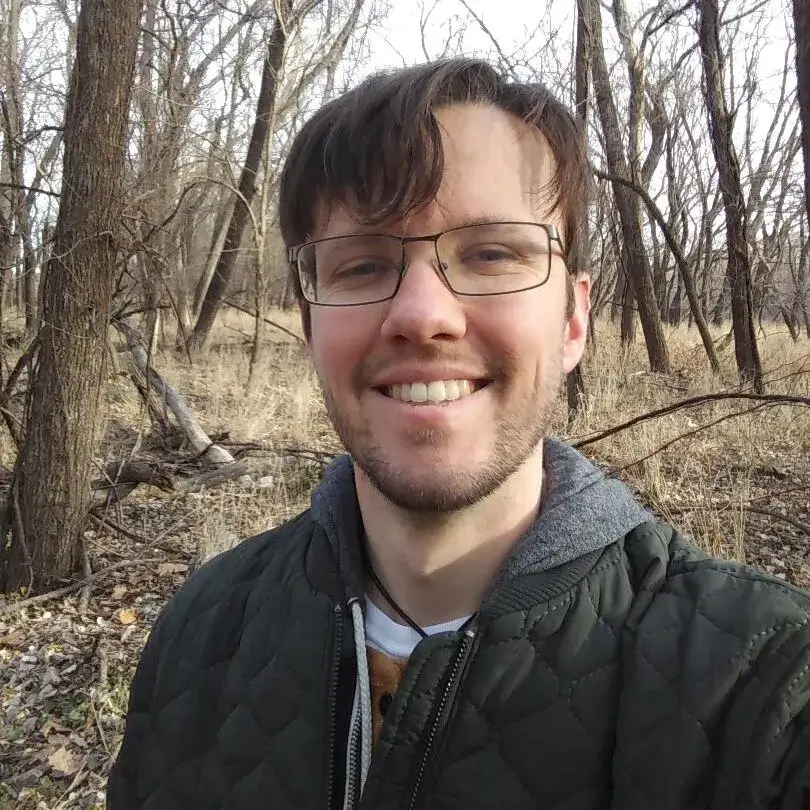Gov. Kelly's new "middle-of-the-road" Medicaid expansion unpopular with Kansas Conservatives

Governor Laura Kelly unveiled the Cutting Healthcare Costs for All Kansans Act in an attempt to expand Medicaid to an estimated 150,000 Kansans. The legislative proposal was unveiled at Holton Hospital on Thursday, December 14 after her months-long “Healthy Workers, Healthy Economy” tour. According to a press release from the Governor’s Office, this proposal builds on previous bipartisan Medicaid Expansion proposals in order to address concerns by Republicans, including making the bill “revenue-neutral.”
“Each year I’ve been in office, I have introduced a bill to expand Medicaid with support from both sides of the aisle. The year, we’re going a step further to meet Republicans in the middle, putting forward a plan that would cut healthcare costs, create jobs, and grow our economy – all at no additional cost for Kansas taxpayers,” Governor Laura Kelly said. “We have taken such a bipartisan approach to incorporate what I’ve been hearing from Kansans during my tour and to reflect conversations we’ve had with Republican lawmakers. Now, there’s no excuse – at this point, every legislator standing in the way of Medicaid expansion is going against a commonsense, fiscally responsible proposal that benefits their constituents.”
According to the Democratic governor’s press release, the bill addressed three key concerns from Republicans including the government expansion to come at no additional cost to Kansans as 90 percent of the government expansion would be paid using taxpayer dollars at the federal level instead of the state level (which, either way, is still taxpayer dollars). The bill would also go further in addressing Republican’s concerns than Gov. Kelly’s previous Medicaid Expansion proposals by including a work requirement for enrollees with exceptions including full-time students, full-time caretakers, veterans, and Kansans with medical conditions. And finally improving public safety by combatting the burden of providing medical care to uninsured inmates that prisons and jails have been shouldering, redirecting resources for law enforcement to focus on other issues.
“I support expanding Medicaid with this provision to include health coverage for recently admitted inmates,” said Douglas County Sheriff Jay Armbrister. “We have seen benefits and cost savings in working with local providers for having health care rates that match Medicaid. Doing so takes the financial and administrative burden of providing that care off counties and keeps our attention focused on our top priority: public safety.”
However, Kansas Republicans have pushed back on this latest expansion proposal from Gov. Kelly.
“While I appreciate the Governor’s newly found support for work requirements for welfare benefits, this is nothing more than smoke and mirrors because Governor Kelly most surely knows that the Biden administration has not approved any Medicaid work requirement and proactively revoked every single work requirement approved previously,” Speaker of the House Dan Hawkins (R-Sedgwick County) said in a press release.
Rep. Hawkins also stated, “As she continues to make false promises, House Republicans will be working on legitimate ways to improve healthcare access, lower costs, and address the IDD waiver waitlist.”
Senate President Ty Masterson (R-Butler and Sedgwick County) also took shots at Gov. Kelly’s proposed work requirements and stated that government is the reason health care costs are so expensive and that more government will not be the solution.
“Cloaked in a fake work requirement and a tax scheme, the governor’s proposal to expand the welfare state creates more problems than it solves,” Sen. Masterson stated in a press release. “It is poor public policy to push able-bodied adults off of private insurance and onto a government program that was intended for the truly vulnerable. While we all agree that health care is too expensive, its cost is largely driven by government – and so adding more government is not a solution.”
Sen. Masterson further stated, “Instead of more government, Kansans need and deserve more personal choice and control. They need more options, with more competition and price transparency, and less hassle through reforms that help people obtain quality private health coverage, providing superior health outcomes and more timely access to care.”
Americans for Prosperity – Kansas (AFP-KS), a Conservative-Libertarian political advocacy group, also took to pushing back on the government expansion. AFP-KS State Director Elizabeth Patton released the following statement:
“Coverage does not equal care and only about 20% of Medicaid expansion funds go to actual healthcare; the majority of the taxpayer dollars go straight to bureaucracy and insurance. Allocating Medicaid funds to able-bodied adults in Kansas means diverting resources away from disabled individuals, pregnant mothers, and children living in poverty.
“Expanding Medicaid only squeezes out those who need care the most. We hope that Governor Kelly realizes that perpetuating a failed program instead of protecting it for the most vulnerable is not the right answer. Kansans can see solutions for better choices at personaloption.com.”
Patton further released an op-ed detailing concerns she sees for the government expansion including expansion costing the average state 157 percent more taxpayer dollars than anticipated and evidence suggesting an overall three percent decline in employment from able-bodied individuals that get on Medicaid.
AFP-KS also interviewed Sen. Beverly Gossage (R-Johnson County), who is the Vice Chair on the Senate Committee on Public Health and Welfare, who spoke on how and why Medicaid Expansion would lead to more problems for Kansans, including how it is unsustainable, decreases health care options, and massive fraudulent claims in expansion states among other issues.
Thanks for reading. Be sure to share and subscribe. You can also help support independent journalism in Kansas by buying me a coffee at buymeacoffee.com/kscon.

Ian Brannan
Ian Brannan is an independent journalist who founded The Kansas Constitutional in April 2022. His work focuses on issues including abortion, Convention of States, drug policy, education, government, LGBT issues, media, and more. He is also the co-host of the Remember COVID podcast.

